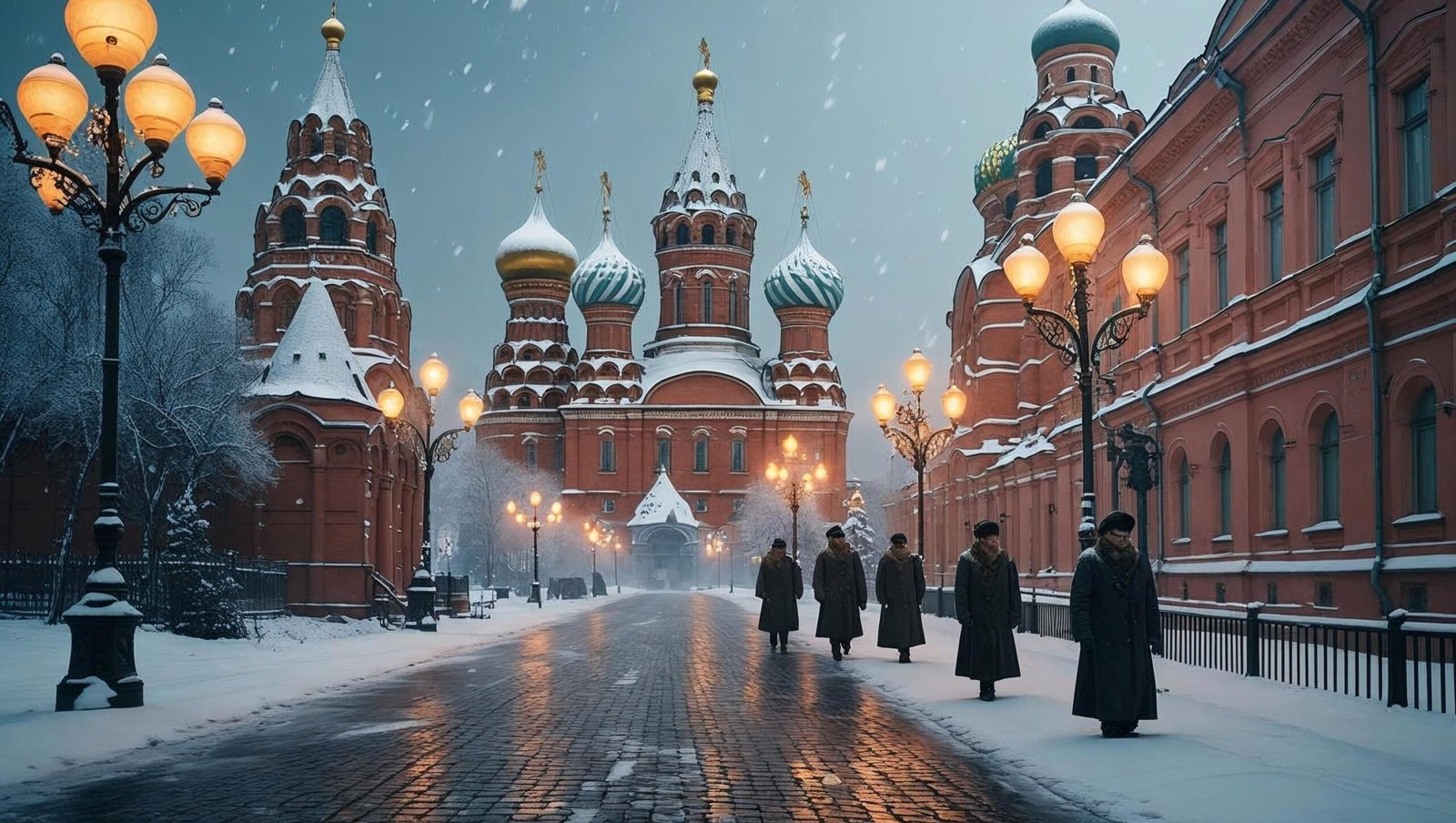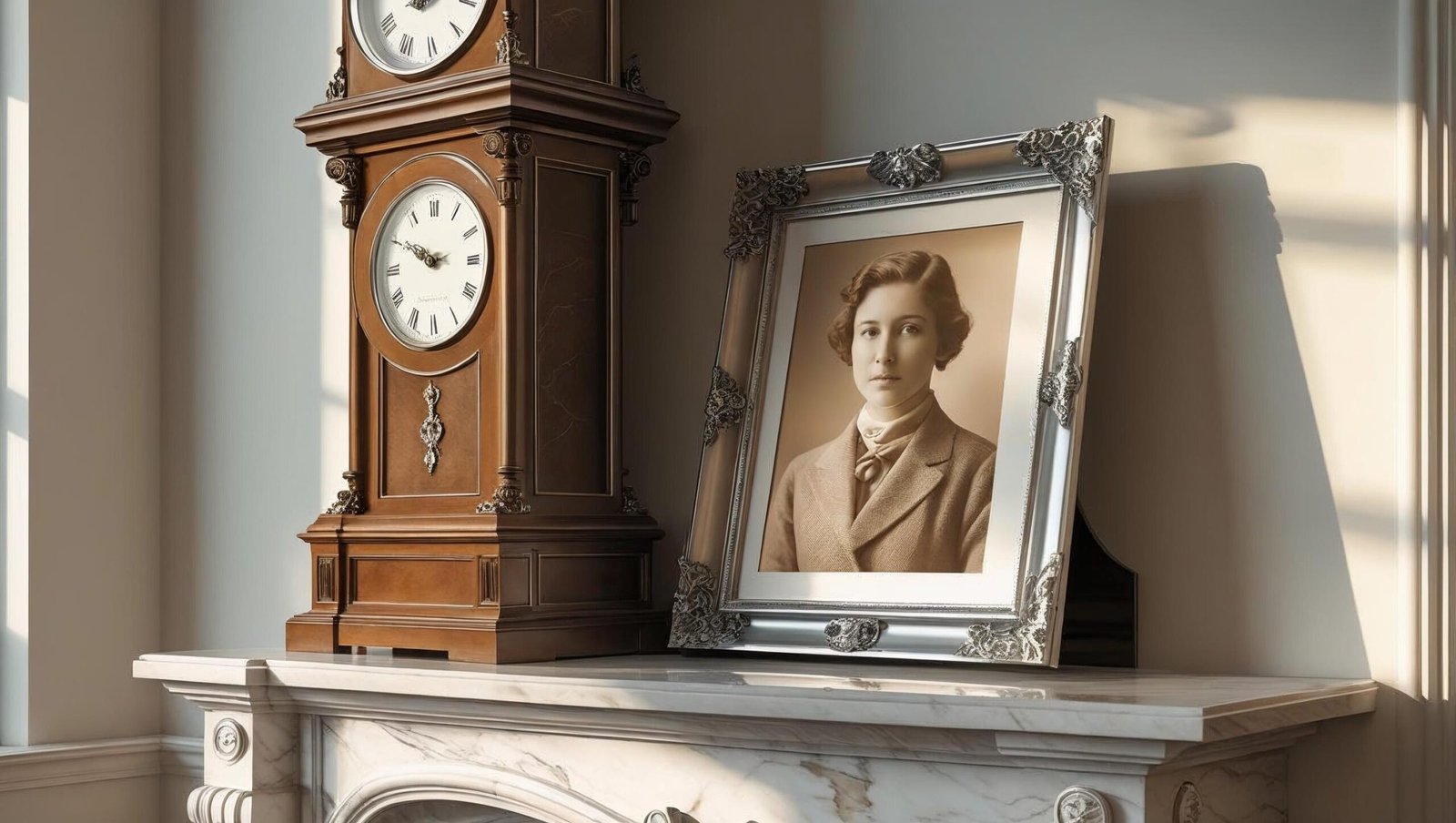A Gentleman in Moscow by Amor Towles: A Timeless Tale of Dignity and Resilience
Introduction
In the realm of historical fiction, few novels capture the essence of human resilience and the indomitable spirit as profoundly as Amor Towles’ A Gentleman in Moscow. Set against the backdrop of post-revolutionary Russia, this literary masterpiece invites readers into the confined yet richly textured world of Count Alexander Ilyich Rostov, who, despite being sentenced to house arrest in Moscow’s illustrious Metropol Hotel, discovers a universe teeming with life, purpose, and unexpected friendships.

Plot Overview
The narrative commences in 1922, with Count Rostov standing before a Bolshevik tribunal. Accused of penning a subversive poem, he is spared execution due to his revolutionary past but is condemned to spend the remainder of his life within the confines of the Metropol Hotel. Stripped of his aristocratic privileges and relocated to a modest attic room, Rostov embarks on a journey of self-discovery.
Within the hotel’s opulent walls, he encounters a tapestry of characters:
-
Nina Kulikova: A precocious young girl who introduces Rostov to the hotel’s hidden corridors and secrets.
-
Anna Urbanova: A glamorous actress whose relationship with Rostov evolves over time.
-
Emile and Andrey: The hotel’s chef and maître d’, who become close confidants.
-
Sofia: Nina’s daughter, whom Rostov raises as his own, discovering a profound sense of purpose in fatherhood.
As decades unfold, the Count witnesses the tumultuous changes in Soviet Russia from his stationary vantage point, finding ways to assert his agency and maintain his dignity amidst the shifting tides of history.
Themes Explored in A Gentleman in Moscow by Amor Towles
One of the most compelling aspects of A Gentleman in Moscow by Amor Towles is its profound exploration of themes such as resilience, the meaning of freedom, friendship, and the passage of time.
Resilience and Adaptation
Count Rostov exemplifies resilience throughout his house arrest. Though confined physically, his spirit and intellect roam free, adapting to his new environment. His transformation demonstrates how the human spirit can flourish even in the harshest conditions.
The Meaning of Freedom
The novel challenges traditional notions of freedom. Rostov’s limited physical freedom contrasts with his boundless inner freedom. Towles elegantly portrays how true freedom is often a matter of perspective and attitude.
Friendship and Human Connection
Despite the Count’s isolation from society, A Gentleman in Moscow by Amor Towles beautifully illustrates how friendships and relationships provide meaning and joy. The bonds Rostov forms within the hotel enrich his life and provide emotional sustenance.
The Passage of Time
The novel spans several decades, subtly portraying the inevitable passage of time and its effects on people and society. Rostov’s journey is a meditation on history, memory, and change.

Writing Style and Narrative Technique
Amor Towles’ writing style in A Gentleman in Moscow is elegant, immersive, and richly descriptive. His use of language is both precise and poetic, creating vivid imagery and atmosphere. The third-person narrative remains tightly focused on Count Rostov’s experiences and perceptions, offering readers an intimate glimpse into his thoughts and emotions.
Towles’ pacing is deliberate, allowing readers to savor each moment and detail, which enhances the book’s immersive quality. The dialogues are crisp, witty, and reveal the nuances of each character’s personality.
Why A Gentleman in Moscow by Amor Towles Stands Out
Several qualities make A Gentleman in Moscow by Amor Towles stand out among historical novels.
Firstly, the novel’s confined setting – the Metropol Hotel – acts almost as a character itself, with its intricate architecture, hidden rooms, and a microcosm of society within its walls. This unique setting allows Towles to explore vast social and political changes without ever leaving the hotel.
Secondly, Count Rostov is a deeply memorable protagonist, whose grace, humor, and dignity in the face of adversity inspire readers. His intellectual curiosity and compassion transcend his physical limitations, making him a symbol of enduring human spirit.
Lastly, the novel’s balance between historical detail and timeless human drama creates a narrative that appeals both to lovers of history and general fiction readers.
Impact and Reception
Since its publication, A Gentleman in Moscow by Amor Towles has been widely acclaimed for its storytelling and depth. It has won several literary awards and been praised by critics for its evocative prose and character development.
Readers often remark on how the novel prompts reflection about life’s challenges and how dignity and kindness can prevail in difficult times.
Chapter-Wise Breakdown of “A Gentleman in Moscow by Amor Towles”
Part I: 1922 – An Honorable Sentence
The novel A Gentleman in Moscow by Amor Towles opens with Count Alexander Ilyich Rostov, a Russian aristocrat, being sentenced to house arrest inside the grand Hotel Metropol by a Bolshevik tribunal. While the court could have easily ordered his execution for writing a poem sympathetic to the nobility, his reputation saves him. The narrative gracefully captures Rostov’s dignified acceptance of his new fate.
Towles introduces the Metropol Hotel as a microcosm of the changing Russian society. Within its walls, Rostov discovers the essence of life—though confined, he begins observing humanity with a deeper lens. This segment of A Gentleman in Moscow by Amor Towles masterfully sets the tone for a philosophical and emotional journey.

Part II: 1923–1930 – Adjustments and Adaptations
This part focuses on Rostov’s adjustment to his new circumstances. From the suite he once occupied, he is moved to a small attic room, losing physical space but gaining mental expansiveness. He forms early relationships with hotel staff, like the maître d’ Andrey and chef Emile. Here, A Gentleman in Moscow by Amor Towles explores the power of adaptability.
Nina, a precocious nine-year-old guest, becomes his companion and teacher of sorts. She opens up hidden passageways within the hotel and new possibilities within Rostov’s mind. These interactions remind the reader that freedom is not purely physical—it also dwells in the mind.
Exploration of Literary Devices in Towles’ Masterpiece
One of the standout elements in A Gentleman in Moscow by Amor Towles is the author’s poetic prose. Towles utilizes symbolism, metaphors, irony, and foreshadowing to enrich the narrative.
-
Symbolism: The Metropol Hotel is a metaphor for pre- and post-revolutionary Russia. While the exterior world changes violently, the hotel remains an anchor of culture and civility.
-
Irony: Though Rostov is “imprisoned,” he finds a truer sense of freedom than many characters in the outside world.
-
Foreshadowing: Towles peppers subtle hints throughout the novel—be it Rostov’s background, his emotional intelligence, or Nina’s fate—that tie together beautifully in the closing chapters.
Such devices make A Gentleman in Moscow by Amor Towles a literary feast for readers and critics alike.
Historical Context: The Soviet Shift
Understanding the Soviet backdrop is essential to appreciating the gravity of A Gentleman in Moscow by Amor Towles. The October Revolution has displaced Russia’s aristocracy, and the country is transitioning from czarist grandeur to socialist realism.
Through the Count’s eyes, readers witness key elements of Stalinist Russia—rationing, surveillance, propaganda, and the erasure of individualism. Despite the political setting, Towles never veers into didacticism. Instead, he lets the characters reflect the larger truth. A Gentleman in Moscow by Amor Towles subtly critiques authoritarianism while highlighting human perseverance.
Part III: 1930–1940 – The Evolution of Character
Time moves forward, and with it, the emotional depth of the narrative. Rostov matures from a witty observer to a man of action and compassion. He becomes a mentor, friend, and even a surrogate father. Nina entrusts him with her daughter, Sofia, as she is taken away by the authorities.
This section of A Gentleman in Moscow by Amor Towles underscores how noble responsibilities transcend titles. Sofia becomes the emotional center of Rostov’s new life, giving him purpose and cementing his transformation.
Towles constructs relationships that are intimate yet broad in implication. Readers can’t help but reflect on the idea of legacy, responsibility, and identity.
Part IV: 1940–1954 – Hidden Resistance and Quiet Triumphs
The war years bring immense changes. The Count takes on the role of headwaiter and becomes an invaluable part of the hotel’s operations. He orchestrates dinners for Communist party leaders, skillfully navigating political minefields with the elegance of a bygone era.
“A Gentleman in Moscow by Amor Towles” shines here, illustrating how dignity can be preserved even in oppressive environments. The narrative doesn’t rely on overt rebellion. Instead, resistance is internal, expressed through culture, food, music, and parenthood.
This is also when Towles’ prose reaches its peak. His descriptions of Sofia’s piano talent, the lavish dinners in the Boyarsky, and the philosophical conversations in the hotel bar are a tribute to beauty in confinement.

Part V: 1954–1956 – The Grand Escape
The final chapters of A Gentleman in Moscow by Amor Towles are a masterclass in suspense and emotional closure. As Sofia prepares for a musical opportunity abroad, the Count devises a daring plan for her freedom—and his.
Without giving away spoilers, Towles executes the ending with finesse, combining emotional closure with intellectual satisfaction. Readers are left pondering questions about purpose, belonging, and whether freedom is a physical state or a matter of the heart.
Comparison with Other Works by Amor Towles
Rules of Civility and The Lincoln Highway are the two other acclaimed works by Towles. However, A Gentleman in Moscow by Amor Towles stands out for its philosophical gravitas and intricate setting.
Where Rules of Civility is about social ascension in New York and The Lincoln Highway focuses on a road journey, A Gentleman in Moscow by Amor Towles is more contained yet infinitely expansive in emotional terrain.
It’s a testament to Towles’ narrative craftsmanship that a novel set entirely within a hotel feels more adventurous and fulfilling than tales that span continents.
What Readers Are Saying
Readers from around the globe have expressed overwhelming admiration for A Gentleman in Moscow by Amor Towles. Common highlights include:
-
The immersive setting of the Hotel Metropol
-
The dignified, likable character of Count Rostov
-
Philosophical depth blended with storytelling ease
-
The beautiful father-daughter bond between Rostov and Sofia
Many reviews claim it is “one of the best novels of the decade,” while book clubs have lauded it as “a profound narrative of survival through civility.”
1. The Role of Food in A Gentleman in Moscow by Amor Towles
In A Gentleman in Moscow by Amor Towles, food is not merely sustenance—it’s a symbol of identity, resistance, and dignity. The elaborate meals served at the Boyarsky restaurant reflect a connection to tradition and culture. Count Rostov and chef Emile treat each dish with reverence, turning culinary moments into quiet triumphs. These scenes enhance the emotional texture of the novel and reveal how beauty survives in the smallest rituals.
2. Music as Liberation in A Gentleman in Moscow by Amor Towles
Music plays a central role in A Gentleman in Moscow by Amor Towles, especially through Sofia’s extraordinary piano talent. Her music offers a metaphorical escape, not just for her but also for Rostov. Despite their physical confinement, the beauty of Sofia’s art gives them wings. Towles uses music to emphasize that true freedom often lies in expression. It resonates as a powerful counterpoint to the limitations imposed by the political regime.
3. The Philosophical Undertone of A Gentleman in Moscow by Amor Towles
One of the most enduring qualities of A Gentleman in Moscow by Amor Towles is its philosophical tone. Through Rostov’s reflections, readers encounter themes of time, purpose, and the value of a well-lived life. The Count’s inner monologues and dialogues brim with wisdom, drawing from Stoic ideals and Russian literary traditions. This reflective layer adds intellectual depth, making the novel as contemplative as it is emotionally rich and narratively compelling.
4. Parent-Child Dynamics in A Gentleman in Moscow by Amor Towles
The bond between Count Rostov and Sofia is the emotional cornerstone of A Gentleman in Moscow by Amor Towles. What begins as an unexpected responsibility blossoms into a touching parent-child relationship. Rostov’s dedication to Sofia’s upbringing is marked by patience, grace, and quiet courage. Their relationship stands as proof that love and family are not defined by blood alone. Towles captures this with sincerity and warmth throughout the novel.
5. Political Subtlety in A Gentleman in Moscow by Amor Towles
A Gentleman in Moscow by Amor Towles doesn’t overtly critique the Soviet regime, but its political subtext is potent. Through nuanced conversations and character arcs, Towles portrays the effects of authoritarianism—loss of identity, constant surveillance, and suppressed individuality. Yet, he balances this with portraits of resilience and quiet rebellion. The novel’s brilliance lies in its ability to challenge tyranny without bitterness, emphasizing the endurance of the human spirit under oppression.
6. Cultural Allusions in A Gentleman in Moscow by Amor Towles
Towles enriches A Gentleman in Moscow by Amor Towles with numerous cultural references—Russian literature, French philosophy, and classical music all shape the narrative’s texture. These allusions aren’t ornamental; they reflect the intellectual world that Rostov continues to nurture despite his confinement. They add layers of richness for discerning readers, offering a deeper understanding of his character and highlighting the lasting power of art and ideas even under totalitarian rule.
7. Character Evolution in A Gentleman in Moscow by Amor Towles
The growth of Count Rostov across the pages of A Gentleman in Moscow by Amor Towles is profound. Initially a man of habits and heritage, he gradually transforms into someone who finds joy in small things and meaning in service to others. His journey is subtle yet powerful. Towles expertly depicts this evolution, showing that true change is internal and often invisible. This character arc is central to the novel’s enduring impact.
8. The Timeless Appeal of A Gentleman in Moscow by Amor Towles
Despite its historical setting, A Gentleman in Moscow by Amor Towles feels timeless. Its themes—grace under pressure, the resilience of the human spirit, and the power of personal values—transcend eras. Readers from different cultures and backgrounds find something profoundly relatable in Rostov’s story. This universality explains the novel’s lasting popularity and critical acclaim. Towles has created not just a historical novel, but a timeless meditation on how to live meaningfully.

Frequently Asked Questions (FAQs)
Q1: Is A Gentleman in Moscow based on a true story?
No, the novel is a work of historical fiction. However, Amor Towles’ meticulous research brings authenticity to the setting and period.
Q2: What is the significance of the Metropol Hotel in the novel?
The Metropol Hotel serves as both a literal and symbolic space, representing confinement but also a world of endless discovery for Count Rostov.
Q3: How long is the book A Gentleman in Moscow?
The novel spans approximately 462 pages, depending on the edition.
Q4: What are the main themes in A Gentleman in Moscow?
Resilience, freedom, friendship, and the passage of time are key themes.
Q5: Would you recommend this book to someone who dislikes historical fiction?
Yes, because beyond historical context, the novel deeply explores human emotions and relationships, appealing to a broad audience.
Conclusion
-
A Gentleman in Moscow by Amor Towles* is a magnificent novel that transcends the boundaries of historical fiction to touch upon universal truths about life, resilience, and the human spirit. Its richly detailed narrative, compelling characters, and profound themes make it a must-read for anyone who appreciates thoughtful storytelling.
This novel reminds us that even when physically confined, the human spirit can find freedom, purpose, and joy. Count Rostov’s journey in the Metropol Hotel is not merely a story of survival but a celebration of dignity and grace.
If you have yet to experience this literary gem, A Gentleman in Moscow by Amor Towles is a worthy addition to your reading list.
For more insightful reviews and literary explorations, visit shubhanshuinsights.com.
Join the conversation: What are your thoughts on Count Rostov’s journey? Share your perspectives in the comments below.